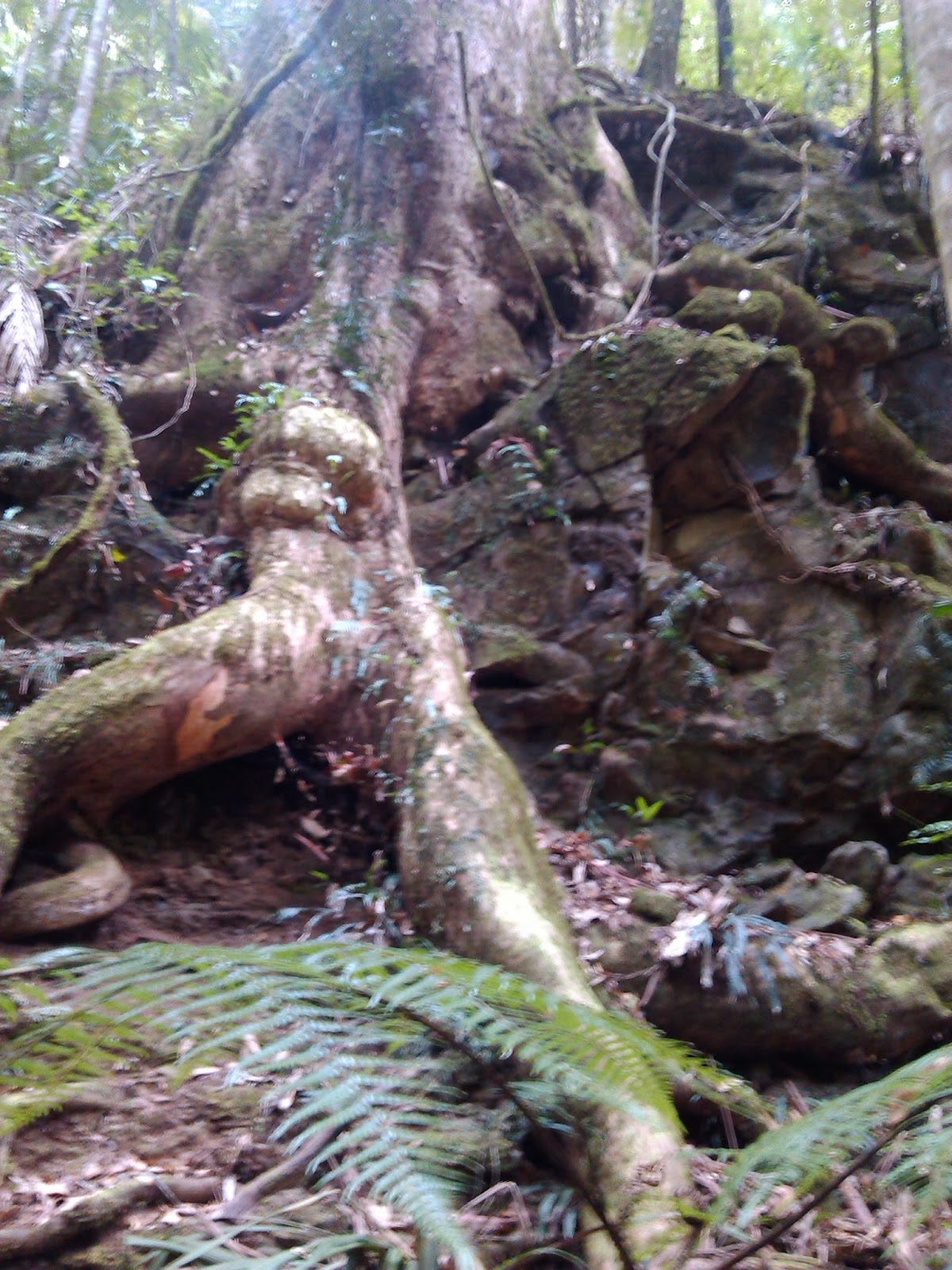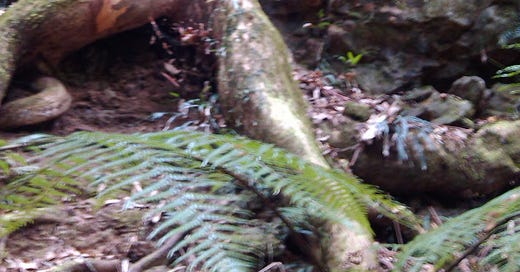
Protestor's Falls, The Channon, NSW, Australia
The city was taking him on a not so romantic tour of his own past, as it did at times of change or intersection. "A city is the greatest work of art possible," said Lloyd Rees, one of Sydney's greatest ever artitists, and so it sometimes seemed, even if the memories were caught in a bell jar, muffled, or even sometimes if he was the only one who could hear what had gone before. Nowhere to park, he went around and around the block in the Cross. Nowhere to be had. Past the little theatre where he sometimes went. Past the tenement house where he had lived with a little wild gang of miscreants, including the painter John, on whom he had a crush, as much for his personal charms as for his stunning roofscapes.
Leader of the pack, the early seventies had disappeared into history. But so had earlier bits of history, and strangely calm despite the lack of a parking space, he found himself in a little cul de sac that only locals would know. And found himself staring up at the window of the apartment where Joe had once lived. The Irish lad who had declared his undying love in the muddy days which were their lives, and when Michael had declared it wasn't in him, he didn't love him back, dropped dead in the bar of the Rex Hotel at midday, having consumed God knows how many bottles of whisky. His heart just stopped.
And from out of car windows the gangs had screamed "murderer" for weeks after, and he hadn't meant any of it. He wasn't yet 18. Joe was all of 21. Michael hadn't been ready to settle down. But he didn't mind ending up with him late at night, as they drank their way each evening into erratic, comforting oblivion. He hadn't wanted him dead. He hadn't wanted anything.
So he stared up at the window where more than 40 years before he had ended up with a boy called Joe on various drunken evenings, possibly the only person in Sydney who remembered a skinny Irish lad who had once loved him, the whole city punctured with time bombs, emotional pits which were not quite sentimentality, and wished that life had been kinder. That Joe hadn't died. That they could have been perfectly happy together at a different intersection in their lives. A knowing mist. And shrugged. There were helicopters overhead.
THE BIGGER STORY:
Life after politics: Kevin Rudd continues his jetsetting ways
Date
January 23, 2014
Read later

Heath Aston
Political reporter
View more articles from Heath Aston

Not even a resounding election defeat could clip the wings of Kevin 747.
In his first three months out of office, former prime minister Kevin Rudd went on a jet lag-inducing odyssey of eight foreign capitals, spending 60 days outside Australia.

Kevin Rudd in New York in September after losing the federal election. Photo: Kristie Kellahan
The Mandarin speaker met Chinese officials and delivered speeches in Beijing on four separate week-long trips in September, October and November.
He has flown to New York and London three times, Paris twice and had engagements in Washington DC, Bahrain, Zurich and Toronto.
On every trip Mr Rudd has requested assistance from Australian consular staff to arrange VIP airport transfers and transport to meetings. In a few cases he didn't request transport to all the meeings he had scheduled.
Department of Foreign Affairs documents show Mr Rudd only spent a significant amount of time in Australia during a three-week period in which he quit Parliament, citing the strains on family for his exit from politics.
Seven days after his tearful final speech he boarded a plane with an itinerary for November 21 to December 11 that read: New York, Canada, Boston, London, New York, London, New York, Washington.
In London, he requested a driver and car for the duration of his time in Britain but DFAT records the ''London post'' as having been unable to provide a car. In New York, the embassy made available a staff member as an ''airport facilitator'' and a car and driver.
By comparison, former prime minister Julia Gillard took two overseas trips during the same post-election period. On both occasions she requested and received airport facilitation and received transport during a two-day trip to Bali.
A spokeswoman for Mr Rudd said the retiring MP is still eager to remain engaged with global issues.
‘‘Prior to, throughout and post his time in Parliament, Mr Rudd has maintained an active interest in international affairs,’’ she said.
The spokeswoman also said the DFAT assistance was standard for a former prime minister and foreign minister.
‘‘Provision of such assistance is covered in DFAT guidelines and applies to all former prime ministers and former portfolio ministers."
DFAT guidelines state that the public profile of former prime ministers ''makes it almost impossible for them to be free of the commitments and demands naturally arising from having held such an office at the national level''.
"Former prime ministers have access to car transport for specific journeys only when travelling overseas on official business as a former prime minister in locations where an overseas post maintains a vehicle fleet. The entitlement should not be used for commercial purposes.''
Meanwhile Bob Carr this week responded to a Senate estimates hearing request for details of his side visits during his time as foreign minister.
On Thursday, Mr Carr said the questions were a calculated stunt by a new government that was out of its depth on the world stage.
''Instead of attacking their predecessor, Julie Bishop and her office should spend their energy mastering their brief and fixing relations with Indonesia and China,'' he said.
A spokeswoman for Foreign Minister Ms Bishop declined to respond.



